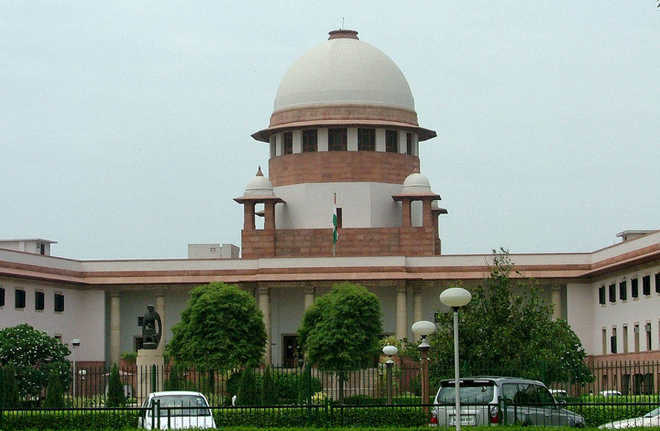
R Sedhuraman
Legal Correspondent
New Delhi, May 23
Two more Muslim women have challenged the validity of “triple talaq” as the Supreme Court has agreed to hear All India Muslim Personal Law Board (AIMPLB) on the practice, besides polygamy and remarriage restrictions.
While Aafreen Rehman, a resident of Jaipur, has questioned her husband’s move to divorce her through “speed post,” Badar Sayeed, ex-MLA of Tamil Nadu, has petitioned the SC pleading that Kazis in her state were routinely and habitually issuing certificates to Muslim men, validating triple talaq.
On March 28, a Bench comprising Chief Justice TS Thakur and Justice UU Lalit asked the Centre to submit to the court the report of an experts’ panel that had studied the status of women since 1989 and the impact of personal laws on them.
AIMPLB has filed an application pleading to be heard on the SC’s move to go into the validity of personal laws in the context of the fundamental rights guaranteed under the Constitution. The Board has taken a stand that Muslim personal laws were based on the tenets of Islam and as such the judiciary had no power to go into the validity of these laws.
The Bench sought the panel’s report on a PIL by Shayara Bano, a victim of triple talaq. Constituted in February 2012, the 14-member panel headed by Prof Pam Rajput of Panjab University had submitted its report in 2015.
In its report titled “Women and the law: An assessment of family laws with focus on laws relating to marriage, divorce, custody, inheritance and succession”, the panel is understood to have recommended amendments to the Dissolution of Muslim Marriages Act, 1939, banning triple talaq and polygamy and providing for statutory interim maintenance to Muslim women.
Since the report had not been made public, it should be produced in the apex court which was suo motu scrutinising personal laws, the petitioner said in an application.
Bano has pleaded for an apex court declaration that triple talaq and polygamy were illegal and unconstitutional as the provisions treated women like “chattel belonging to men” and militated against modern principles of human rights and gender equality.
She said she wanted to secure a life of dignity, unmarred by discrimination on the basis of gender or religion. Under the remarriage restrictions (nikah halala), Muslim women cannot marry a divorced man without an intervening marriage with another man.
In her petition, Bano pleaded that the marriage and divorce acts of Christians, Hindus, Buddhists, Sikhs, Jains and Parsis did not have such gender-discriminatory provisions.
In fact, many Islamic nations, including Saudi Arabia, Pakistan and Iraq, had banned or restricted such practices, while these continued to vex not only Indian Muslim women like the petitioner but also society at large.



























